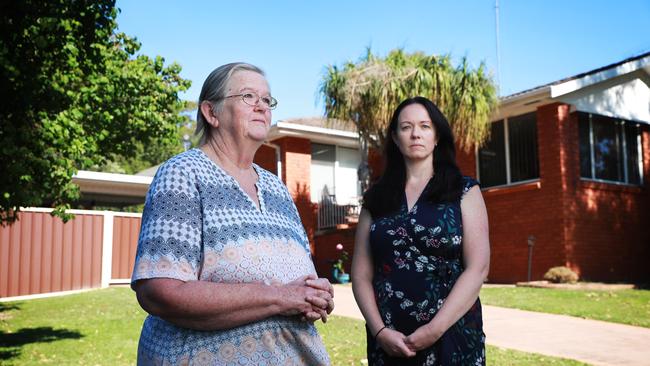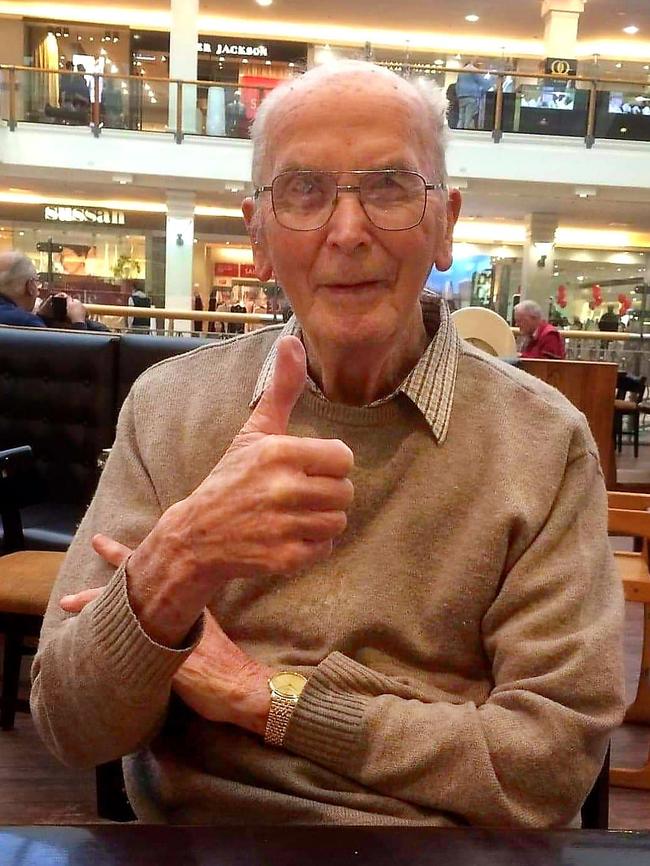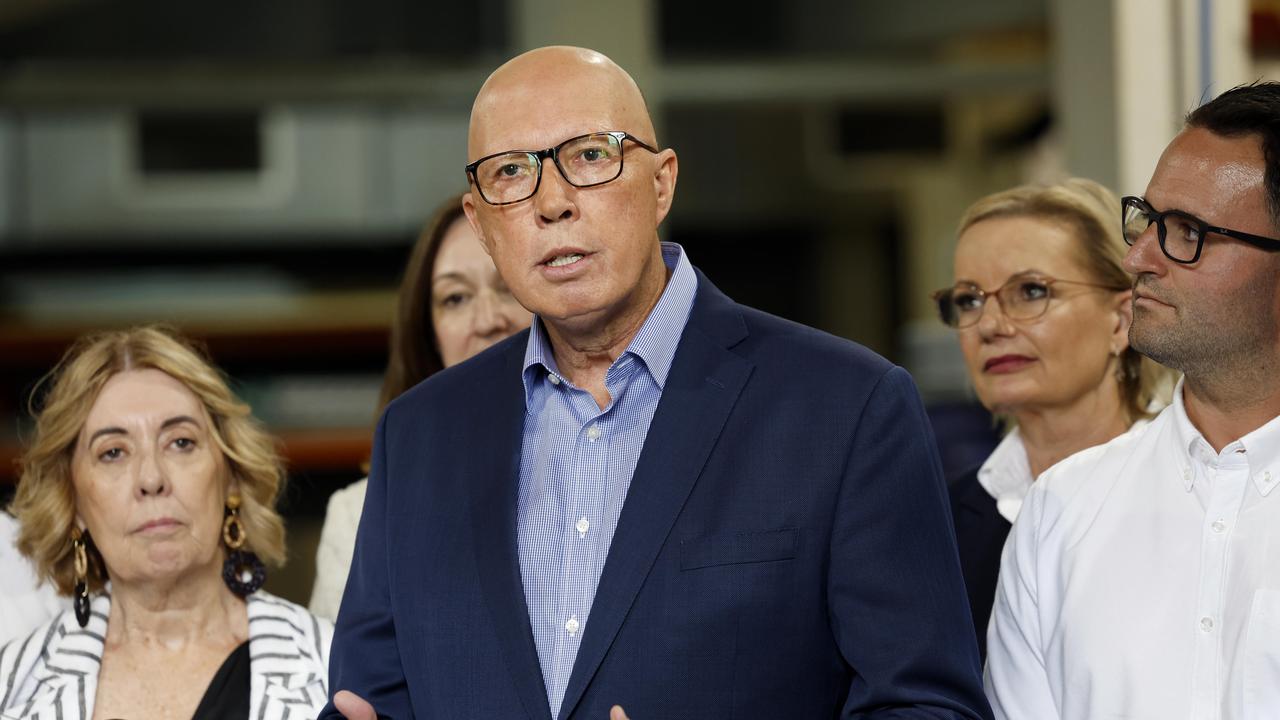Coronavirus: ‘He gave us a thumbs-up … then he died’
Sue O’Neill’s last conversation with her father Raymond Jennings was through the flyscreen window of his Newmarch House room.

Sue O’Neill’s last conversation with her father Raymond Jennings was through the flyscreen window of his Newmarch House room. The nursing home was in lockdown, with visitors banned as a preventative measures to stave off the threat of the coronavirus — and yet Mr Jennings’s only concern was that his daughter would get sunburn while she visited him from outside.
“Even then, he was thinking about me and trying to arrange things that were good for me,” Ms O’Neill says. “We said goodbye, he gave me a thumbs-up — and that was the last time I saw him.”
In less than two weeks, the 93-year-old Mr Jennings was diagnosed with COVID-19 and became the first victim at the aged-care centre in Sydney’s west.
The virus washed through the home after a healthcare worker tested positive to the virus over the Easter long weekend, having worked multiple shifts while unknowingly infectious.
The outbreak has become Australia’s second-largest cluster of coronavirus deaths, after the Ruby Princess cruise ship, with 16 residents killed from the virus and a total of 69 infections.
Despite the succession of deaths, Ms O’Neill has fond memories of the aged-care centre her father called home for two years.
“I feel emotionally attached to Newmarch because that’s where Dad was and he was so well cared for there,” she says. “I loved everyone there, the manager, right down to the cleaner who gave you a smile every time you walked in.
“That was the Newmarch I knew, and what’s happened since has been terrible for the families. We do really feel for the families.”

After the outbreak began, families complained of poor communication and accused the centre’s operator, Anglicare, of keeping them in the dark about the health of their loved ones.
Ms O’Neill’s daughter Claire says she is distressed to hear of families’s experiences that differed to her own. “We’ve been thinking of them a lot and praying that communications could be resolved so families who still have a loved one there are getting the support they need,” she says.
“We are disappointed on behalf of the other families because their heartache must be difficult, but it’s not anger. It’s more just sadness. The whole thing is just tragic.
“We were lucky because he was the first and the extent of the impact hadn’t hit the nursing home, but we had good communication and we felt supported.”
A staff member informed the family of Mr Jennings’s positive diagnosis on April 16. A nursing home on the other side of Sydney, BaptistCare’s Dorothy Henderson Lodge, had already been hit by the coronavirus, with six residents killed. But Sue O’Neill did not imagine her father’s home was the virus’ next target.
“The big shock was getting the phone call that he tested positive. That’s when it really brought it home. This is real for us,” she says.
It took just one day for Mr Jennings’s health to deteriorate and he passed away in his sleep. Mr Jennings, who had pre-existing health issues, had opted out of end-of-life support. Instead, he received palliative care onsite.
The O’Neills were unable to say goodbye in person due to lockdown rules, but they had a staff-member tell Mr Jennings that the family loved him.
“We understand that his last words were that he loved us too,” Claire says.



To join the conversation, please log in. Don't have an account? Register
Join the conversation, you are commenting as Logout